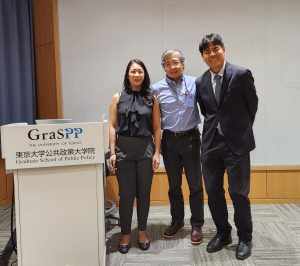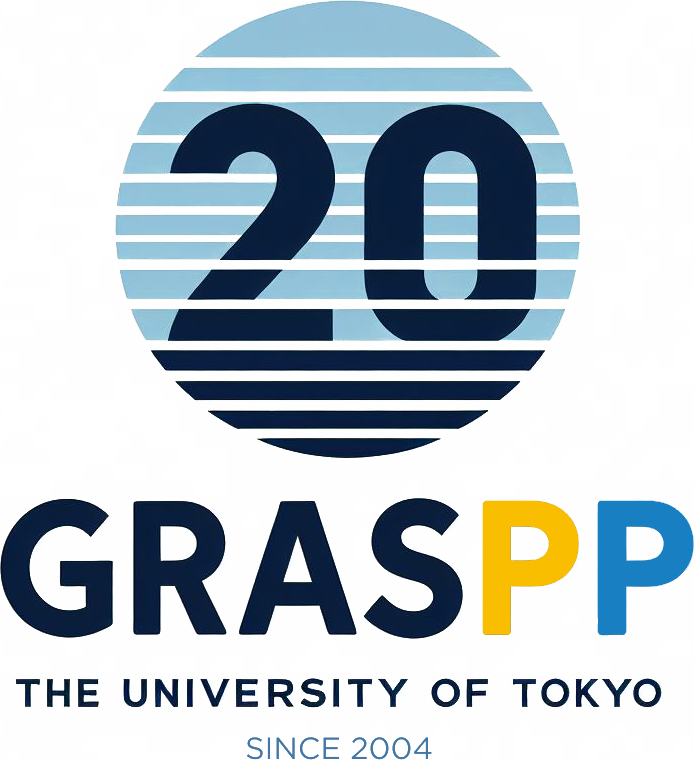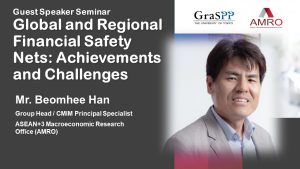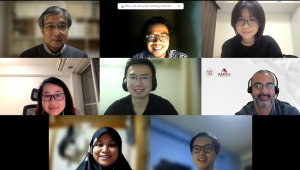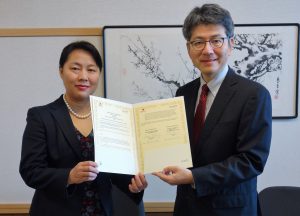On June 5 and 7, a group of students had a dialogue with two professionals from the ASEAN+3 Macroeconomic Research Office (AMRO) on “AMRO’s History and Evolution in the Context of ASEAN+3 Financial Cooperation” and “Global and Regional Financial Safety Nets: Achievements and Challenges” respectively. GraSPP is grateful to AMRO and two professionals, Mr. Beomhee Han and Ms. Faith Pang, for giving students insight into the role of AMRO in global and regional contexts.
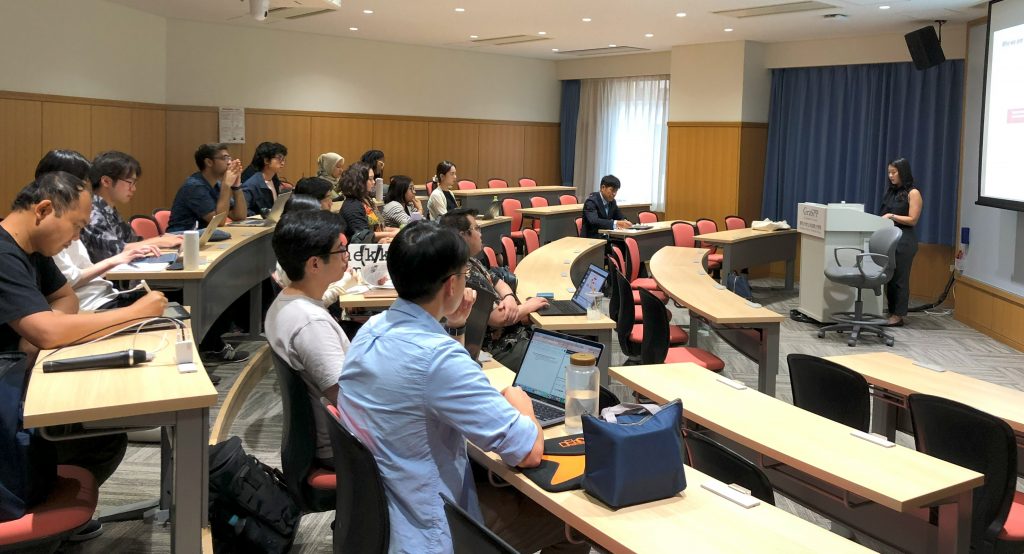
Guest speaker messages
“Thanks much for inviting me to speak at GraSPP. It was heartening to know that the lecture was useful to the students. The GraSPP students raised probing and thought-provoking questions that reflected their intellectual curiosity during the Q&A. I greatly enjoyed our interactions and hope that there will be more such exchanges between AMRO and GraSPP in the future!” Faith Pang, Senior Strategy & Coordination Officer, AMRO
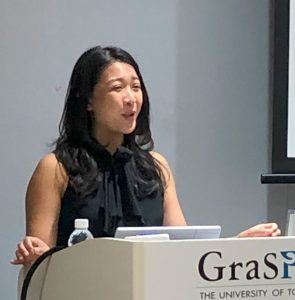
“I also learned a lot by interacting with students and other participants. The old saying goes that ‘the best time to repair the roof is when the sun is shining.’ Nevertheless, people often do not follow the proverb. It is easy to put off repairs when everything is running smoothly without any impending crisis in the pipeline. Repairs can be expensive, disruptive, and inconvenient. Still, I believe that we can help prevent larger, more expensive problems down the road by upgrading the current regional financial safety net into a more robust one.” Beomhee Han, Group Head / CMIM Principal Specialist, AMRO
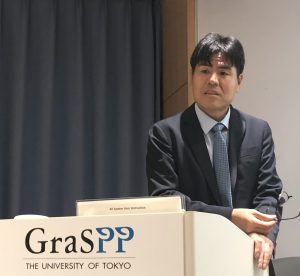
Student feedback
“What an informative presentation! AMRO is a goal-oriented and resilient international organization. It must receive approvals from all members to work towards one treaty, which is challenging yet great work!”
“I was surprised that even central bankers didn’t know how to cope with the situation in the Asian currency crisis. It was nice to establish the organization providing information and restraining hedge funds.”
“Political will is paramount to achieving financial cooperation in the region.”
“I am glad to learn about the structure of AMRO and its vision. It plays an important role in stabilizing the financial and macroeconomic conditions in the ASEAN+3 region.”
“The establishment of AMRO was timely for the region. AMRO needs to be given a higher mandate that can match IMF to some extent so that AMRO can take over some of IMF roles.”
“I learned that AMRO, as a young international organization, has served a pivotal function in supporting and strengthening the economic and financial stability of the ASEAN+3 region. I was inspired to hear, ‘In a crisis, there is opportunity.’”
“Besides fostering further understanding of safeguarding macroeconomic and financial resilience in the region, the discussion provided clear perspectives on the present and future ASEAN situation and its neighboring countries considering the geopolitical issues at hand.”
“In increasing global geopolitical and trade tensions, multilateral cooperation in the finance track through international organizations such as AMRO buttresses the global system. Collectively they remind us of interdependencies and reinforce the importance of collaboration.”
“Geopolitics always influence the event and decisions of international politics in all spheres. Though the idea of the formulation of the Asian Monetary Fund was not institutionalized mainly due to the concerns of the US and IMF, the unreadiness of China, and the geopolitical concerns of the US over Japan in achieving the creation of regional order with its image.”
“Regional geopolitics has changed significantly, particularly with the rise of China: the important role of ASEAN for the US in containing China, and Japan’s role in institutionalizing regional rule-based order. Given the situation, with the new attempt at the formation of AMF, there could be more possibilities than the time in 1998; however, the motivation of Japan can be the main question to be answered at this time.”
“I’ve learned how AMRO functions as a research arm of ASEAN+3 to support monitoring its members’ economic health. We were also introduced to CMIM, which can act as a lender of last resort for its members.”
“AMRO has been pivotal in maintaining economic stability within the ASEAN+3 region. As an economics student, I understand the challenges and complexities of gathering and harmonizing data across multiple countries with varying standards.”
“The opportunity to interact with guest speakers from AMRO in class and discuss the challenges faced by AMRO with the data foundation for their research projects further reinforced my understanding of the pivotal role of data in such macroeconomic studies.”
“AMRO’s position offers a unique opportunity to champion increased cooperation and openness in regional data sharing. I have high expectations of what can be achieved if such a data-sharing system is established. Not only would it enable richer and more nuanced research, but it would also enhance the capacity of ASEAN+3 countries to collaborate on macroeconomic matters. A robust data-sharing system could serve as the foundation for a new level of economic resilience and integrated development.”
“He who feeds you controls you; exploring RFA is vital to avoid over-independence from IMF/World Bank.”
“Although four lines of defense are available, more are needed due to many uncertainties. Learning from the Asian Financial Crisis, many ASEAN+3 countries remain reluctant to get loans from IMF. AMRO’s role needs to be boosted for a more robust line of defense in the region.”
“Given the various challenges in the region, the discussion explored multiple issues on navigating the complexities and importance of a reliable financial safety net in the region while exploring other possible financing facilities and structures.”
“The global financial safety net has continuously evolved through various crises. This adaptation looks set to continue as we confront modern challenges. Within this context, I believe in a future where obstacles would be overcome and an AMF be founded.”
“The concept of financial safety nets is gaining the interest of policymakers at a regional level, ensuring more resilience for the region for unexpected financial crises in the future. Multilateral arrangements based on consensus could give ASEAN members more confidence to get involved than bilateral ones.”
